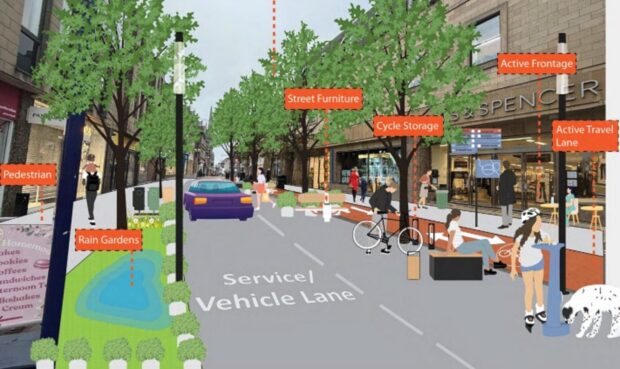Fife’s psychologists are ready to help people suffering mentally as a result of lockdown isolation and fear about the coronavirus pandemic.
The head of Fife’s psychology service said people would be affected in a range of ways, from normal feelings of anxiety and sadness to more severe depression.
Consultant clinical psychologist Dr Frances Baty outlined the region’s response following a warning from NHS Tayside it was bracing itself for the “hidden impact” of lockdown on people’s mental health.
While many people will be able to help themselves, she said some will need structured support to heal the emotional damage of factors including isolation and fear of infection.
Domestic violence in lockdown, grieving alone, being unable to be with loved ones ill in hospital and children being cut off from peers during lockdown could all take their toll.
Dr Baty said there was a “suite” of help available, from online resources people can use to help themselves to intensive support for those in crisis.
She said: “It’s really important to understand that there are absolutely normal psychological responses to a pandemic situation.
“There will be people experiencing feelings of distress or anxiety which is associated with the general uncertainty of the whole situation. That is perfectly normal.”
She said people may be feeling the sadness of loss or bereavement or may be struggling through not having their normal coping strategies, including being with friends or taking certain types of exercise.
She said: “For a lot of people there will be a process of adjustment when we come out of lockdown. It’s about understanding these feelings will reduce with adjustment to the new normal.
“On top of that some people might begin to experience more significant mental health difficulties.
“One group might be people who have responded to anxiety in the past by developing more obsessive or compulsive behaviours such as handwashing.
“We don’t yet know the impact for people who have not been able to follow the normal rituals and processes of loss and bereavement.”
A tiered approach was taken to helping people suffering from mental health issues, depending on the severity, she said, and for those able to help themselves the key was providing information to enable them to cope and understand how they are feeling.
She said: “In Fife, we are making sure we have the correct information as accessible as possible and we will continue to do that and build on that.”
Online programmes will be made available through the Access Therapy Fife website in the next three to four weeks.
Other people, she said, could benefit from helpline support, such as through NHS 24 or a new advice line for parents and carers to be flagged more widely in the next couple of weeks.
Face-to-face help continued to be available for those in need of structured support and an emergency system in place for those with severe mental health difficulties or in crisis, she said.










